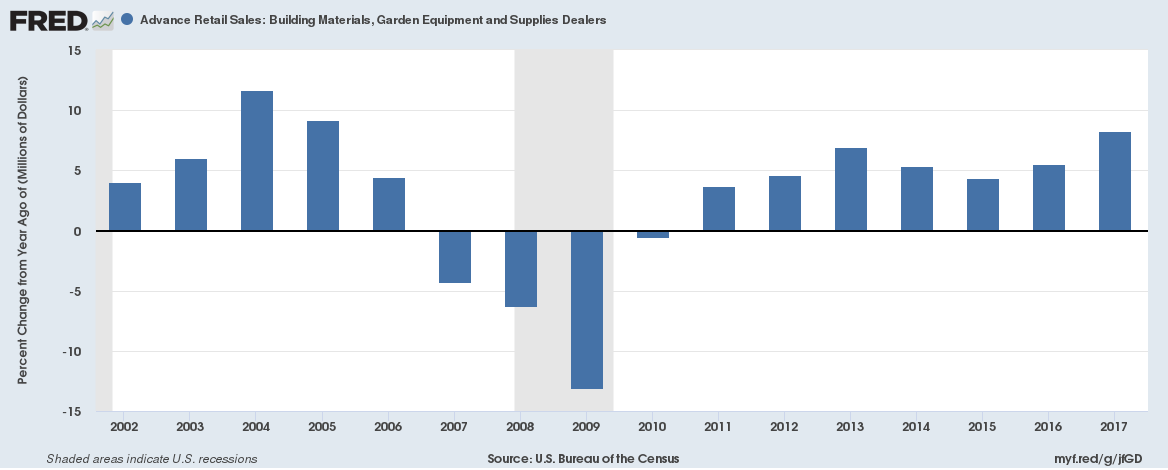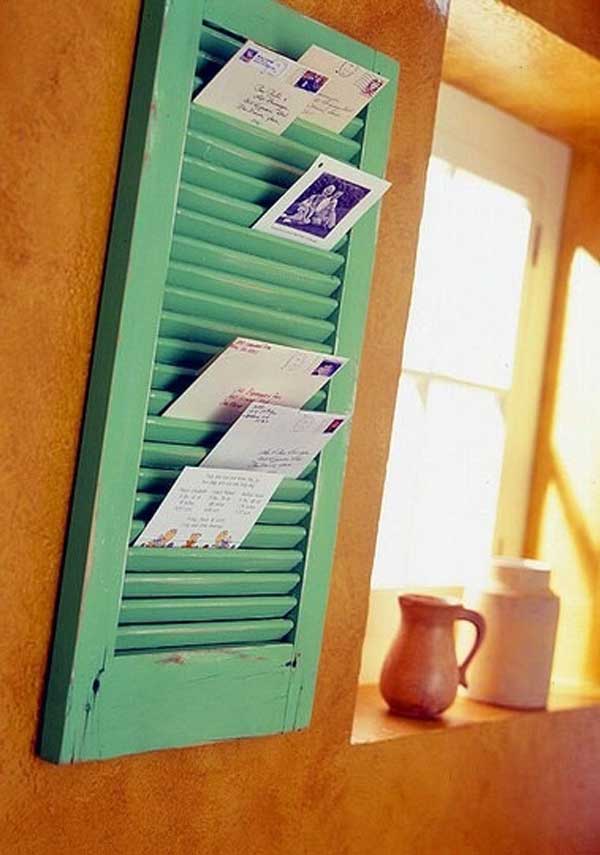Table of Content
At the end of the third quarter, the company operated 2,295 retail stores in all 50 states, the District of Columbia, Puerto Rico, the U.S. "This is an important data point for investors to gauge progress within the all-important retail channel, particularly as Home Depot reinvests back into the stores with departmental resets," Postol said. While bolstering sales, those expenses along with surging costs of everything from fuel to wages led to a 35-basis point decline in fourth-quarter gross margins to 33.2%. The retailer also announced that it will make permanent the temporary compensation programs it has implemented for frontline employees during the pandemic. The move will result in $1 billion of additional expenses annually.
The home improvement retailer also boosted its quarterly dividend by 10%. Sales rose 23.2% to $33.54 billion, topping analyst expectations of $32.04 billion. Digital sales increased 80%, with customers picking up about 60% of their orders in stores. "I think it would be very helpful from my perspective if you did continue to report comparable store sales growth," he said. Home Depot's quarterly second-quarter net sales rose 8.1% to $41.12 billion. The home-improvement retailer earned $4.53 on a per-share basis, beating estimates of $4.44 per share.
Home Depot stock jumps after big earnings beat, surprise same-store sales growth
Sales at stores open at least a year rose 5.2%, which was also better than analysts had expected. Net income rose 24% to $3.43 billion, or $3.18 per share, in the quarter ended Nov.1, up from $2.77 billion, or $2.53 per share, in the year-ago period. "The decision to not to report comps is likely to create some skepticism on the core retail business particularly given that retail sales were light," Morgan Stanley analyst Gregory Melich wrote in a note to clients.
HD, -1.86%rallied 3.2% in premarket trading Tuesday, after the home improvement retailer reported fiscal first-quarter earnings that rose above expectations, surprise growth in same-store sales and raised its full-year outlook. Net income for the quarter to May 1 rose to $4.23 billion, or $4.09 a share, from $4.15 billion, or $3.86 a share, in the year-ago period, beating the FactSet consensus of $3.69. Sales grew 3.8% to $38.91 billion, well above the FactSet consensus of $36.71 billion, while same-store sales increased 2.2% compared with expectations of a 2.9% decline. "Fiscal 2022 is off to a strong start as we delivered the highest first quarter sales in company history," said Chief Executive Ted Decker.
Home Depot beats quarterly same-store sales estimates
Real-time last sale data for U.S. stock quotes reflect trades reported through Nasdaq only. Intraday data delayed at least 15 minutes or per exchange requirements. Home Depot anticipates earnings this year of about $10.45 per share, far better than analysts projections of $10.08.
Growth accelerated in the fourth quarter, but a downbeat forecast for 2022 sent the stock lower. Founded in 1993 by brothers Tom and David Gardner, The Motley Fool helps millions of people attain financial freedom through our website, podcasts, books, newspaper column, radio show, and premium investing services. Browse an unrivalled portfolio of real-time and historical market data and insights from worldwide sources and experts. The slowdown in Home Depot's sales also lowers expectations for smaller rival Lowe's Cos Inc (LOW.N), which is even more dependent on DIY consumers than Home Depot, J.P. Morgan analysts said. The results still topped Wall Street's forecast of $25.75 billion.
Read Next
Does the idea of hitting up family or friends for cash make you cringe? You may be forgetting that the people close to you might actually be happy to loan you money. During the question and answer segment of Home Depot's conference call, Sanford Bernstein analyst Colin McGranahan voiced the sentiments of many on Wall Street. Get stock recommendations, portfolio guidance, and more from The Motley Fool's premium services. "We don't see anything that we would point to and say that's the impact of Delta, not yet," he said, as the company did not provide a full-year outlook.
Home Depot's stock has risen 60.5% over the previous three years. That highlights both the solid returns it has delivered investors in that time and the reasonable rate of increase considering the boom it experienced during the pandemic. A report released Tuesday, showed that U.S. home prices rose at a faster pace in December, with mortgage rates remaining low and a falling supply of available properties. The S&P CoreLogic Case-Shiller 20-city home price index climbed 2.9% in December from a year earlier after posting a 2.5% gain in November. It's unlikely these boom times will last forever, and management has forecast revenue will stay relatively flat in 2022. The market was disappointed in these projections, and Home Depot's stock price has fallen 11% since the announcement.
The stock has tumbled 28.7% year to date through Monday, while the Dow Jones Industrial Average DJIA, -0.49%has shed 11.3%. "We will continue to provide you with retail operating metrics, including sales per square foot and weighted average weekly store sales." Same-store sales rose 24.5% in the fourth quarter ended Jan.31, beating analysts' average estimate of an 18.9% increase,according to IBES data from Refinitiv. Home Depot reported a better-than-expected fourth quarter with strong comparable-store sales.

Home Depot has spent about $1.7 billion on temporary pay and benefits so far in 2020. Has been looking for ways to drive profits even as it slows store openings, like expanding its supply business and beefing up services. Home Depot has rolled out measures such as chartering its own cargo ship and using air freight to move in-demand goods to beat supply chain disruptions and shipping delays. The company expects operating margins to be flat in 2022, assuming inflation will not get any worse.
AG Edwards analyst Brian Postol said Home Depot's management is too smart to hide a weakening same-store sales trend by not reporting the data. Analysts had been expecting Home Depot HD, -1.86%to provide more clarity and break out results for its two businesses, but the absence of same-store sales data caught the Street off guard. The company, which last month named chief operating officer Edward Decker as its next top boss, projected full-year sales growth to be "slightly positive". "The margins are being pressured by a number of things including supply chain cost increases, labor cost increases and other cost inflation that they're able to pass through , but not fully offset," said Michael Baker, analyst at D.A.
U.S. same-store sales at Home Depot climbed 3.4% in the second quarter - the smallest increase in two years, and missed analysts' estimates of a 4.9% rise, according to IBES data from Refinitiv. Overall, Home Depot's net sales in Q4 increased by 10.7% year over year to reach $35.7 billion. That's the second straight quarter of accelerating revenue growth.
By measuring the sales movement in the stores that have an operating history, and stripping out new store openings and other expansions, industry watchers can better gauge the health of a particular retailer. After all this, Home Depot is trading at a forward price to earnings of 19.75, down from the nearly 27 it was selling for at its recent peak. The stock is not expensive, but the most cautious investors can wait to observe how consumer behavior evolves over the next few quarters before adding shares of Home Depot.

He estimated that the results imply a same-store increase of 2.2%. That's on top of the nearly 20% growth it delivered in 2020 compared to 2019. To put these figures into better context, the retailing giant's compound annual growth rate for the last decade is 6.9%, which demonstrates the magnitude of the tailwind the retailer is currently benefiting from. Intraday Data provided by FACTSET and subject to terms of use.
Slowdown expected
The home improvement retailer experienced a surge in sales at the pandemic onset that slowed down in the quarter ended July as it was going up against tough comparisons. But these latest figures show growth is moving higher again, despite the tough comparisons. For the three months ended Feb. 2, Home Depot Inc. earned $2.48 billion, or $2.28 per share. That's better than the per-share earnings of $2.11 projected by industry analysts, according to a survey by Zacks Investment Research. A year earlier the Atlanta company earned $2.34 billion, or $2.09 per share. Home Depot’s U.S. same-store sales surged 24.6% in the quarter.













